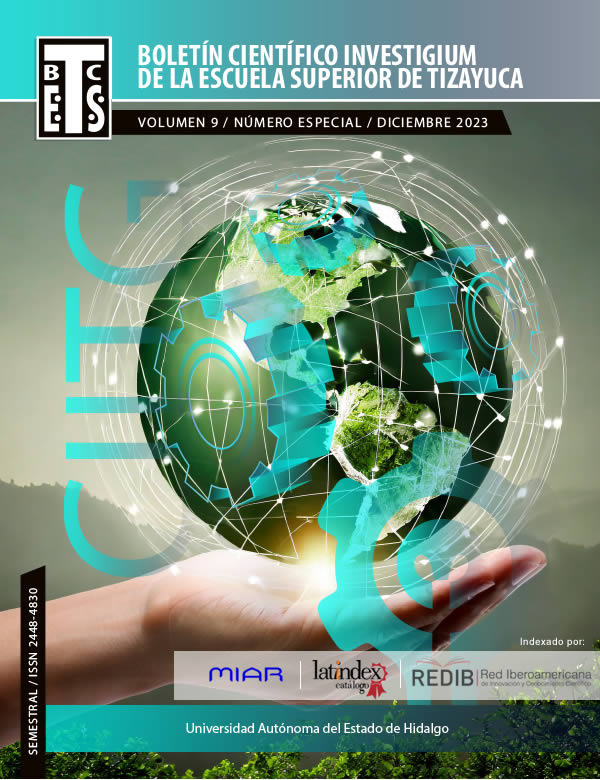The Smart Tourist Destination Model: Implications and Perspectives in Mexico
Abstract
This article focuses on analyzing the implications and perspectives of implementing the Smart Tourist Destination Model by SEGGITUR in Mexico, from the perspective of planning and managing smart tourist destinations. We begin by defining the concept of a smart tourist destination and its relationship with the concept of a smart city. Next, we present the methodology we have followed and the key pillars that guide this model of smart destinations: Governance, Innovation, Technology, Sustainability, and Accessibility.
Subsequently, we examine the implementation of this model in Mexico and highlight the elements that the country has developed in relation to the practices adopted by these destinations to ensure the satisfaction of both residents and visitors. Finally, we conduct an analysis of the implications and prospects of the Smart Tourist Destination Model, concluding that its implementation represents an opportunity to enhance the ability to predict outcomes and promote the inclusion of various sectors, such as artisans. We also emphasize the importance of service segmentation to improve virtual platforms. Additionally, we stress that destinations already holding this distinction must redouble their efforts to strengthen this activity through the adoption of innovation and technology.
Downloads
References
AENOR. (2013). ¿Cómo ser un destino turístico inteligente? La Revista de la evaluación de la conformidad.
Buhalis, D. &. (2015). A smart tourism destinations enhancing tourism experience through personalization of services. Information and Communication Technologies in Tourism, 377-389.
DTI. (17 de diciembre de 2020). Destino Turístico Inteligente. Obtenido de https://www.destinosinteligentes.es/destinos/tequila-mexico-2/
España, P. N. (2012-2015). Plan Nacional e Integral de Turismo en España. España.
Generalitat Valenciana, I. V. (2015). Obtenido de http://www.thinktur.org/media/Manual-de-destinostur%C3%ADsticos-inteligentes
Gretzel et al., 2., & Werthner et al., 2. (2015). Future research issues in IT and tourism. Information TechNology and Tourism, 1-15.
Lue, et al. Fesenmaier. (1993). Conceptualization of multi-destination pleasure trips. Annals of Tourism Research, 289-301.
OMT. (2017). INNOVACIÓN, TECNOLOGÍA Y SOSTENIBILIDAD: PILARES DE LOS DESTINOS INTELIGENTES. Obtenido de https://www.unwto.org/es/archive/press-release/2017-03-07/innovacion-tecnologia-y-sostenibilidad-pilares-de-los-destinos-inteligentes
OMT. (21 de Noviembre de 2022). CONGRESO MUNDIAL DE DESTINOS TURÍSTICOS INTELIGENTES. Obtenido de https://www.unwto.org/es/events/iii-congreso-mundial-de-destinos-turisticos-inteligentes
Rivera, M. & Félix, A. (2019). Planificación estratégica y gobernanza en la recuperación de destinos turísticos afectados por desastres socio-naturales. Un estado de la cuestión. Investigaciones Geografícas, 235-254.
SECTUR. (2015). Bolteìn 81 SCTUR y SEGITTUR Trabajan coordinadamente para desarrollar el primer destino inteligente Mexicano. México: SECTUR.
SEGITTUR. (2015). LIBRO BLANCO DESTINOS TURÍSTICOS INTELIGENTES. SEGITTUR.
SEGITTUR. (2022). Destino Turístico Inteligente. Obtenido de https://www.destinosinteligentes.es/que-es-dti/
SEGITTUR. (2022). Destinos Turísticos Inteligentes. Obtenido de https://www.segittur.es/destinos-turisticos-inteligentes/proyectos-destinos/destinos-turisticos-inteligentes/
Shafiee, S. G. (2021). Smart tourism destinations: A systematic review. Tourism Review, 505-528. doi:https://doi.org/10.1108/TR-06-2019-0235
Soares, A., Moreira, D., Parrerira, P., & Shitsuka, R. (2018). Metodología da pesquisa científica. Universidade Federal de Santa Maria. Obtenido de https://repositorio.ufsm.br/bitstream/handle/1/15824/Lic_Computacao_Metodologia-Pesquisa-Cientifica.pdf?sequence=1
Copyright (c) 2023 Aide Maricel Carrizal Alonso, Nancy Testón Franco , Carolina González Espinoza, Fernando Benítez Leal

This work is licensed under a Creative Commons Attribution-NonCommercial-NoDerivatives 4.0 International License.











